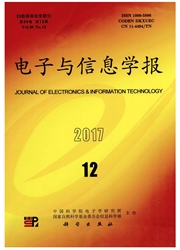

 中文摘要:
中文摘要:
为了获得SPM(Scratch-Pad Memory)部件最佳的使用效果,需要合适的SPM性能和功耗模型来指导编译优化过程。现有的功耗模型只提供SPM部件的平均访问功耗,没有反映电路实际功耗随电路不同输入而改变的特征,限制了更进一步的优化。该文提出依照电路结构生成SPM部件的基本功耗模型,并使用程序运行时信息生成模型中的参数因子,用来反映不同应用程序运行时电路的实际活跃度。实验结果表明,该功耗模型测量的能耗值在总体上与现有基于统计方法生成的功耗模型结果相一致,同时能反映不同应用程序访问SPM部件时的功耗差异,对编译器优化SPM部件的访问方式具有重要的指导意义。
 英文摘要:
英文摘要:
In order to achieve a better application effect of Scratch-Pad Memory(SPM), it's appropriate to construct a proper SPM's performance and power-consumption model to guide the compiling optimization process. The existing power-consumption modeling can only provide SPM's average access power-consumption which didn't reflect the characteristic that the actual circuit's power-consumption varied as the input varied. It restricts further optimization. This thesis proposes to construct SPM's basic power-consumption modeling according to the circuit structure and generate modeling's parameters based on program's runtime information. These can reflect the circuit's actual active degree when different programs executed. Shown in the experiment, the power-consumption measured is basically as accurate as the one that based on the existing statistical method on average. Furthermore, the new modeling can reflect the difference of power-consumption when different programs access SPM. This technique has an important guiding significance to the access mode as the compliers optimize SPM.
 同期刊论文项目
同期刊论文项目
 同项目期刊论文
同项目期刊论文
 期刊信息
期刊信息
